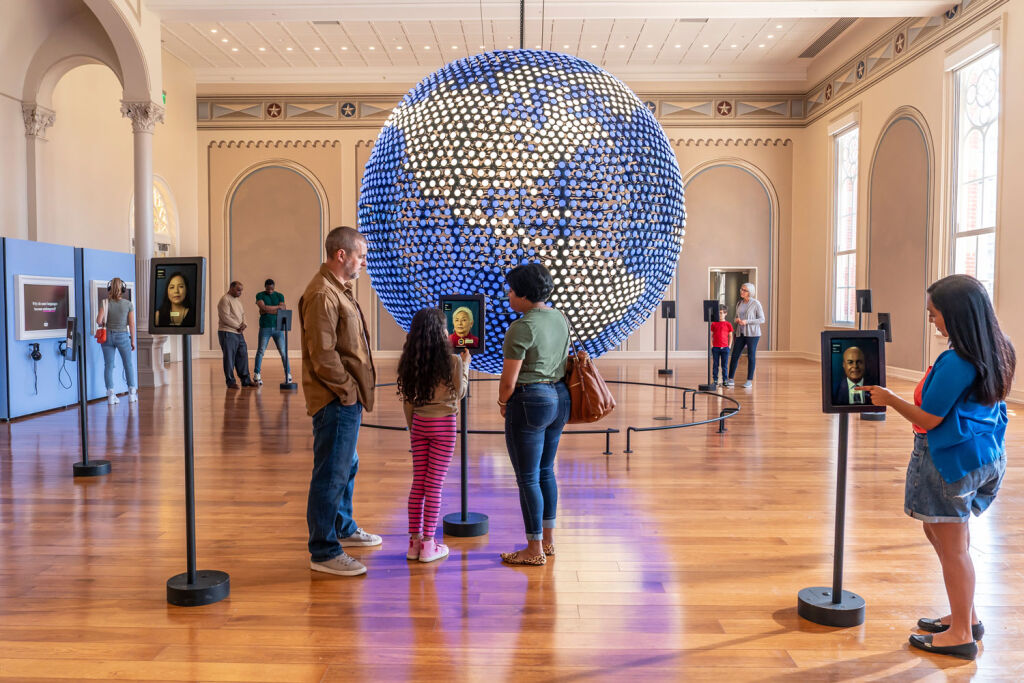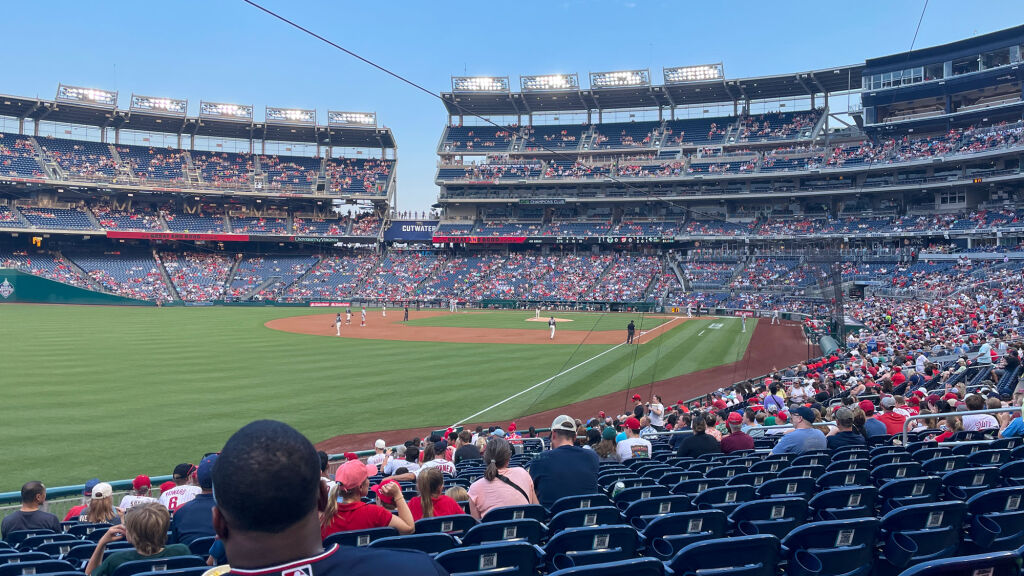The Swiftie Library: 12 Literary References in Taylor Swift’s Discography
Taylor Swift is known for her chart-topping pop hits and glittering performances, but did you know she’s a master of literary references? With her 12th album, The Life of a Showgirl, out today, here’s a look back at some of the surprisingly literary layers to her past album lyrics. (It’s like going back to English class, but more fun.)
Listen along with our The Swiftie Library playlist.
1. “The Road Not Taken,” Robert Frost
Two roads diverged in a wood, and I—
I took the one less traveled by,
And that has made all the difference.— Robert Frost, “The Road Not Taken” (read the full poem at poetryfoundation.org)
Swift alludes to this famous Robert Frost poem several times. In particular, she returns to the phrase “the road less traveled by” in two songs: “The Outside” (2006) and “illicit affairs” (2020). In the earlier song, she sings that she fruitlessly “tried to take the road less traveled by / But nothing seems to work out the first few times.” And in “illicit affairs,” she gives the phrase a double meaning in the context of infidelity, as both the literal “road less traveled by” and a choice the narrator most likely regrets. Swift also nods to the poem in her 2020 song “‘tis the damn season,” when she sings “I’m staying at my parents’ house / and the road not taken looks real good now.”
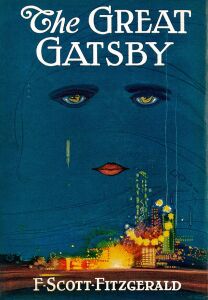
The first edition cover of The Great Gatsby, illustrated by Francis Cugat
2. The Great Gatsby, F. Scott Fitzgerald
Few writers capture glamour and tragedy like Fitzgerald, and Swift borrows from him often. In her 2020 song “happiness,” she sings, “I hope she’ll be a beautiful fool,” echoing Daisy Buchanan’s famous line: “I hope she’ll be a fool — that’s the best thing a girl can be in this world, a beautiful little fool.” Even Fitzgerald’s motif of the “green light” finds reference: “all you want from me now / is the green light of forgiveness.”
In other songs, she references the extravagant parties Gatsby is most famous for. In the 2017 song “This is Why We Can’t Have Nice Things” she sings, “It was so nice throwin’ big parties / Jump into the pool from the balcony/ Everyone swimmin’ in a champagne sea / And there are no rules when you show up here/ Bass beat rattling the chandelier / Feelin’ so Gatsby for that whole year.” And while less explicit, Swift’s 2020 song “the 1” hints at a touch of Gatsby with “Roaring twenties, tossing pennies in the pool,” as she ponders on what could have been with a lost love.
3. Jane Eyre, Charlotte Brontë
Charlotte Brontë’s influence on Swift is unmistakable. The extended metaphor in the 2020 song “invisible string” echoes a line spoken by Mr. Rochester in Jane Eyre. In the novel, he says: “I sometimes have a queer feeling with regard to you — especially when you are near me, as now: it is as if I had a string somewhere under my left ribs, tightly and inextricably knotted to a similar string situated in the corresponding quarter of your little frame.” Her 2022 song “Dear Reader” is likely another nod to the work, referencing one of the most famous lines in English literature, straight from Jane Eyre: “Reader, I married him.”
Additionally, Taylor Swift’s songs frequently explore the trope of the scorned woman — a topic shared with Brontë’s novel. Indeed, the song “mad woman,” which immediately follows “invisible string” on the Folklore album, channels Rochester’s hidden first wife with its exploration of female rage.
4. Rebecca, Daphne du Maurier
In an interview with Apple Music, Swift confirmed that her 2020 song “tolerate it” was inspired by du Maurier’s haunting Gothic novel: “When I was reading Rebecca by Daphne du Maurier, I was thinking wow, her husband just tolerates her. She’s doing all these things and she’s trying to impress him, and he’s just tolerating her the whole time…And so I ended up writing this song ‘tolerate it,’ that’s all about loving someone who is ambivalent.” The protagonist’s devotion to her distant, dismissive husband mirrors Swift’s lyric: “I know my love should be celebrated / but you tolerate it.”
5. “The Rime of the Ancient Mariner,” Samuel Taylor Coleridge
In Coleridge’s lyrical ballad, an innocent albatross is shot down by a sailor and becomes a metaphor for the psychological burden the sailor feels from his guilt. In her 2024 song “The Albatross,” Swift reclaims the metaphor: she, and women in general, become the albatross, who leads the ship out of a deadly storm only to be killed and blamed for others’ destruction: “I’m the albatross / I swept in at the rescue / The devil that you know / Looks now more like an angel / I’m the life you chose / And all this terrible danger.”
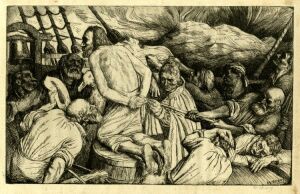
“The Albatross about my Neck was Hung” in an etching by William Strang from the 1896 edition of Samuel Taylor Colridge’s “The Ancient Mariner”
6. The Lake Poets
Swift shows her love of the Romantic movement again in her 2020 song “the lakes,” referring to the Lake District in England, where English Romantic writers like William Wordsworth and Samuel Taylor Coleridge lived. Her opening line hints at the Romantic movement: “Is it romantic how all my elegies eulogize me?” And in the chorus, she sings, “take me to the lakes where all the poets went to die…Those Windermere peaks look like the perfect place to cry.” (Windermere is a large lake in the Lake District.) She even puns on Wordsworth’s name: “I’ve come too far to watch some namedropping sleaze / Tell me what are my words worth.”
7. The Sun Also Rises, Ernest Hemingway
Hemingway’s 1920s novel ends with this powerful, bittersweet scene: “‘Oh Jake,’ Brett said, ‘We could have had such a damned good time together.’ … The car slowed suddenly, pressing Brett against me. ‘Yes,’ I said. ‘Isn’t it pretty to think so?’” It must’ve left quite an impression on Swift because she directly echoes it in two songs: “invisible string” and “the 1.” Both songs play with the wistfulness of what might have been.
8. Alice’s Adventures in Wonderland, Lewis Carroll
Swift tumbles down the rabbit hole in her 2014 song “Wonderland.” In addition to the obvious reference in the title, she calls out some of the most iconic moments in Carroll’s book, singing “Took a wrong turn and we / Fell down a rabbit hole,” “Didn’t you call my fears with a Cheshire Cat smile?,” and “Haven’t you heard what becomes of curious minds?,” which evokes Alice’s famous line, “Curiouser and curiouser!”
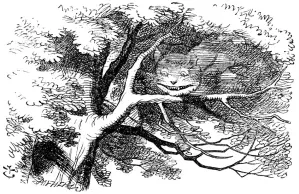
The Cheshire Cat fades to a smile in Sir John Tenniel’s illustration from the 1865 edition of Alice’s Adventures in Wonderland
9. Peter Pan, J.M. Barrie
The Boy Who Wouldn’t Grow Up is also a recurring theme in several of her songs. In her 2020 song “cardigan,” Swift uses the metaphor of “Peter losing Wendy” to illustrate the feeling of growing out of young love, also hinting at the iconic scene of Peter Pan trying to catch his shadow with the line “Chasin’ shadows in the grocery line.” Swift once again refers to Barrie’s work in her 2024 song “Peter,” making the metaphor even more explicit as an appeal to a partner who refuses to grow up — “Forgive me, Peter / My lost fearless leader…And you said you’d come and get me but you were twenty-five / And the shelf life of those fantasies has expired / Lost to the ‘Lost Boys’ chapter of your life.”
10. The Scarlet Letter, Nathaniel Hawthorne
Swift nods to Nathaniel Hawthorne’s classic novel a few times in her discography. In her 2014 song “New Romantics,” she sings about showing off “our different scarlet letters,” and in her 2008 song “Love Story,” the narrator calls herself a scarlet letter.
11. Greek mythology
Swift’s discography includes several references to Greek mythology, including “Achilles heel” in her 2012 song “State of Grace” and “Midas touch” in 2020’s “champagne problems.” She also alludes to the Trojan princess Cassandra, who was cursed by Apollo to see the future but never be believed, in her 2024 song “Cassandra,” which features the chorus, “So, they killed Cassandra first ’cause she feared the worst / And tried to tell the town / So they filled my cell with snakes, I regret to say / Do you believe me now?”
12. William Shakespeare
Finally, no library is complete without the bard himself, William Shakespeare. Taylor Swift nods to his work in several of her songs, most notably in “Love Story.” In the song, she writes a happier ending for Romeo and Juliet, starting “on a balcony in the summer air” and ending with a joyous proposal.
But that’s not her only reference to Romeo and Juliet. In addition to her extended reference to Coleridge’s work in “The Albatross,” Swift nods to one of the play’s most famous lines when she says, “A rose by any other name is a scandal.” In the play, Juliet says of Romeo, “What’s in a name? That which we call a rose / By any other name would smell as sweet.”
And it already looks like her new album has its share of Shakespeare references. Not only does the album contain a track titled “The Fate of Ophelia,” referring to the character from Hamlet, but the album’s cover also recalls Sir John Everett Millais’s painting of Ophelia in the river.
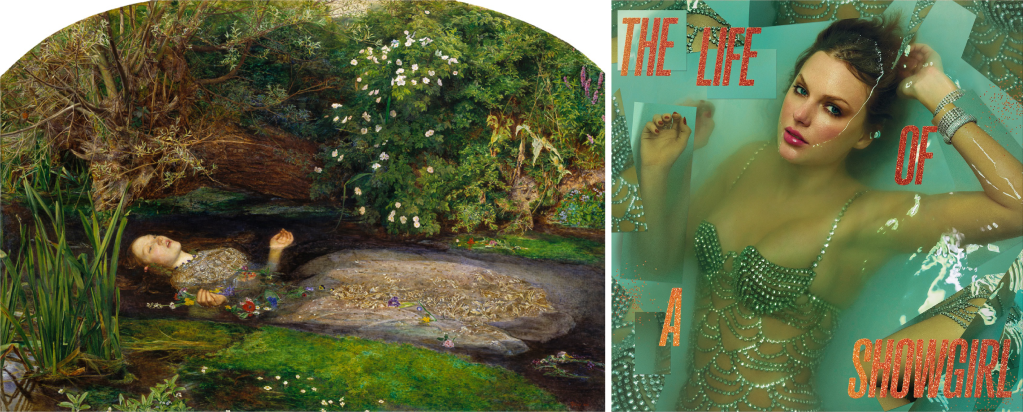
Sir John Everett Millais’s 1851–52 painting “Ophelia” (left) and the cover of The Life of a Showgirl (right)
Are there any literary references we missed? What songs are you most looking forward to in The Life of a Showgirl? We want to know! Share your thoughts and questions by tagging us @PlanetWordDC on social media.

